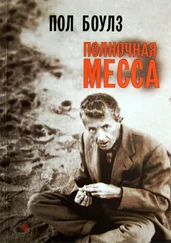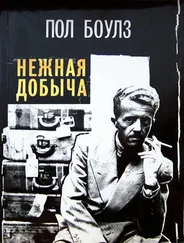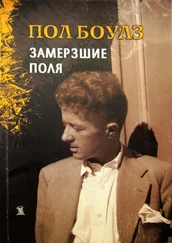Пол Боулз - Let it come down
Здесь есть возможность читать онлайн «Пол Боулз - Let it come down» весь текст электронной книги совершенно бесплатно (целиком полную версию без сокращений). В некоторых случаях можно слушать аудио, скачать через торрент в формате fb2 и присутствует краткое содержание. ISBN: , Жанр: Современная проза, на английском языке. Описание произведения, (предисловие) а так же отзывы посетителей доступны на портале библиотеки ЛибКат.
- Название:Let it come down
- Автор:
- Жанр:
- Год:неизвестен
- ISBN:1-931082-19-7
- Рейтинг книги:5 / 5. Голосов: 1
-
Избранное:Добавить в избранное
- Отзывы:
-
Ваша оценка:
- 100
- 1
- 2
- 3
- 4
- 5
Let it come down: краткое содержание, описание и аннотация
Предлагаем к чтению аннотацию, описание, краткое содержание или предисловие (зависит от того, что написал сам автор книги «Let it come down»). Если вы не нашли необходимую информацию о книге — напишите в комментариях, мы постараемся отыскать её.
Let it come down — читать онлайн бесплатно полную книгу (весь текст) целиком
Ниже представлен текст книги, разбитый по страницам. Система сохранения места последней прочитанной страницы, позволяет с удобством читать онлайн бесплатно книгу «Let it come down», без необходимости каждый раз заново искать на чём Вы остановились. Поставьте закладку, и сможете в любой момент перейти на страницу, на которой закончили чтение.
Интервал:
Закладка:
There was a halfwit son who sat with them; he nodded his head endlessly, overcome by the wisdom of his father’s utterances. The other sons looked at Thami, slightly embarrassed at hearing these ideas, which they supposed he must consider ridiculously old-fashioned. Then they talked of other things, and presently the old man returned to watering his flowers. Thami and the sons retired to a secluded part of the orchard where they could not be seen by him, and smoked, Thami feeling that under the circumstances he could not very well insult the family by returning to the house on the mountain solely to take food to the Christian. They passed the day eating, sleeping and playing cards, and it was twilight when he took his leave, not having dared to suggest that they give him food again, nor even finding the courage to ask for the use of the blanket. But he could not go back up to the house without food, for Dyar would be ravenous by now, and this meant that he must go into Agla and buy supplies for dinner. « Yah latif, yah latif ,» he said under his breath as he followed the path that led downward to the village.
There was little doubt in Dyar’s mind, as he stumbled along the cobbled road that led through the town gate, that the place was Agla. He had merely come down by a very wide detour, by going around to the back of the mountain, and then returning to the steep side once again. Thus there was a real possibility of his running into Thami, who, it now occurred to him, would be convinced he had run away in order to avoid having to pay him what he owed him. Or no, he thought, not at all. If Thami were after everything, such a detail would naturally be of no importance. In that case the meeting would bring matters to a head very quickly. The men he had chosen to help him would be nearby; by some casual gesture as they walked along the street together, he and Thami, in full view of the populace, the signal would be given. Or they might even be with him. The only hope would be to defend the brief case as though his whole life were locked inside. Then, when they got it open and found it empty, he might possibly be far enough away to escape.
The tiny streets and houses were smothered with whitewash, which glowed as if all during the day it had been absorbing the sunlight and now, at dusk, were slowly giving it off into the fading air. It all looked, he thought, as though it had been made by a pastry-cook, but probably that was only because at the moment he did not need much imagination for things to look edible. With infallible intuition he chose the streets that led to the center of town, and there he saw a small native restaurant where the cooking was being done in the entrance. The cook lifted the covers of the various copper cauldrons for him; he looked down into them and ordered soup, chickpeas stewed with pieces of lamb, and skewered liver. There was a small dim room behind the kitchen with two tables in it, and beyond that a raised niche covered with matting where several rustics squatted with enormous loaves of bread which they tore into pieces and put into the soup. For Dyar the assuaging of his appetite was a voluptuous act; it went on and on. What he had ordered at first proved to be completely inadequate. Thami had told him that the desire for food after smoking kif was like no other appetite. He sighed apprehensively. Thami and his kif. How would he feel when he realized his prisoner had escaped, taking with him even Thami’s own pipe and mottoui? He wondered if perhaps that might not be considered a supreme injury, an unforgivable act. He had no idea; he knew nothing about this country, save that all its inhabitants behaved like maniacs. Maybe it was not Thami himself of whose reactions he was afraid, he reflected — it might be only that Thami was part of the place and therefore had everything in the place behind him, so to speak. Thami in New York — he almost laughed at the image the idea evoked — he was the sort no one would even take the trouble to look at in the street when he asked for a dime. Here it was another matter. He was a spokesman for the place; like Antaeus, whatever strength he had came out of the earth, and his feet were planted squarely upon it. «So you’re afraid of him,» he remarked to himself in disgust. He looked through the bright kitchen out into the black street beyond. «Afraid he might walk in that door». He sat perfectly still, somehow expecting the idea to conjure up the reality. Instead, an oversized Berber appeared in the doorway, his djellaba slung loosely over one shoulder, and ordered a glass of tea. While he waited the five minutes it always took to prepare the tea, (because the water, while hot, was never boiling, and the mint leaves had to be stripped one by one from the stalk) he stood staring at Dyar in a manner which the other at first found disconcerting, then disturbing, and finally, because he had begun to ask himself the possible reason for this insolent scrutiny, downright frightening. «Why does he block the door like that?» he thought, his heart beginning to beat too fast in a sudden wave of desperate conjecture. For the moment there was only one answer: one of Thami’s henchmen had arrived to keep watch, to prevent his escape. They were probably posted in every café and eating-place in the town. For the first time it occurred to him that they might do their work on him in Thami’s absence, with Thami conveniently seated in some respectable home, laughing, drinking tea, strumming on an oud. And this possibility seemed in a way worse, perhaps because he had never been able to see Thami in the role of a brutal torturer, the tacit understanding with his own imagination having been that things would somehow be done with comparative gentleness, painlessly. He looked up once again at the Neanderthal head, the deep furrows in the slanting forehead and the brows that formed a single ragged line across the face, and knew that for such a man there were no halfway measures. Yet he could not see any baseness in the face, nor even any particular cunning — merely a primal, ancient blindness, the ineffable, unfocused melancholy of the great apes as they stare between the cage bars.
«I don’t want any of this,» he told himself. You didn’t try to outwit such beings; you simply got out if you could. He rose and walked over to the stove. «How much?» he said in English. The man understood, held up his two hands, the fingers outspread, then raised one lone forefinger. Turning his back on the giant in the doorway, so as to hide as well as possible the fistful of bills he pulled out of his pocket, he handed the cook a hundred-peseta note. The man looked startled, indicated he had no change. Dyar searched further, found twenty-five pesetas. Dubiously the cook accepted it, and pushing aside the Berber in the entrance, went out into the street to get change. «But good God,» Dyar thought, seeing the prospect of a whole new horizon of difficulties spreading itself before him. No change for a hundred pesetas. Then a thousand pesetas would be just ten times as hard to get rid of. He moved his shoulder a little, to feel the twelve hundred and sixty thousand-peseta notes against his skin, around his middle. He stood there, conscious of the huge Berber’s gaze, but not for an instant returning it, until the cook came back and handed him fourteen pesetas. When he went out into the street he turned to the right, where there seemed to be the greater number of passers-by, and walked quickly away, looking back only once just before he forced himself through the middle of an ambling group, and being not at all surprised to see the Berber step out of the restaurant and start slowly in the same direction. But Dyar was going rapidly; the next time he turned around to look, he was satisfied that he had lost him.
The whitewashed cobbled street was full of strollers in djellabas moving in both directions; the groups saluted each other constantly as they passed. Dyar threaded his way among them as unostentatiously as he could for a man in a hurry. Sometimes the street would turn into a long, wide flight of stairs with a shop no bigger than a stall on each step, and he would run lightly all the way down, gauging his distances with care to be sure of not plunging into a group of walkers, not daring to look up to see what effect his passage was having on the populace. When he came out into an open space lined on one side with new one-story European buildings he stopped short, not certain whether to continue or go back. There was a café over there with tables and chairs set out along a narrow strip of sidewalk, and at the tables sat Spaniards, some of whom wore the white uniforms of officers in the Moroccan army. His instinct told him to stay in the shade, to go back into the Arab town. The question was: where would he be safer? There was no doubt that the greater danger was the possibility of being stopped and questioned by the Spanish. Yet the fear he felt was not of them, but of what could happen back in the streets he had just come from. And now as he stood there clutching his brief case, the people pushing past him on both sides, his mind still muzzy from the kif, he saw with terror that he was hopelessly confused. He had imagined the town would be something else, that somewhere there would be a place he could go into and ask for information; he had counted on the town to help him as a troubled man counts on a friend to give him advice, knowing beforehand that he will follow whatever advice he gets, because the important thing is to do something , to move in any direction, out of his impasse. Once he had been to Agla, he had thought, he would know more about his situation. But he had not understood until now how heavily he was counting on it, partly perhaps because all day he had been thinking only of escaping from Thami. However, at this moment he was conscious that the props that had held up his future were in the act of crumbling: he never had had any plan of action, he could not imagine now what he had ever intended to «find out» here in the town, what sort of people he had thought he would be able to see in order to get his information, or even what kind of information he had meant to get. For an instant he looked upward into the sky. The stars were there; they did not tell him what to do. He had turned, he had started to walk, back through the town’s entrance gate into the crooked street, but his legs were trembling, and he was only indistinctly aware of what went on around him. This time, since a part of the mechanism that held his being together seemed to have given way, he somehow got turned off the principal street which led steeply upward, and let his legs lead him along a smaller flat one that had fewer lights and people in it, and no shops at all.
Читать дальшеИнтервал:
Закладка:
Похожие книги на «Let it come down»
Представляем Вашему вниманию похожие книги на «Let it come down» списком для выбора. Мы отобрали схожую по названию и смыслу литературу в надежде предоставить читателям больше вариантов отыскать новые, интересные, ещё непрочитанные произведения.
Обсуждение, отзывы о книге «Let it come down» и просто собственные мнения читателей. Оставьте ваши комментарии, напишите, что Вы думаете о произведении, его смысле или главных героях. Укажите что конкретно понравилось, а что нет, и почему Вы так считаете.









